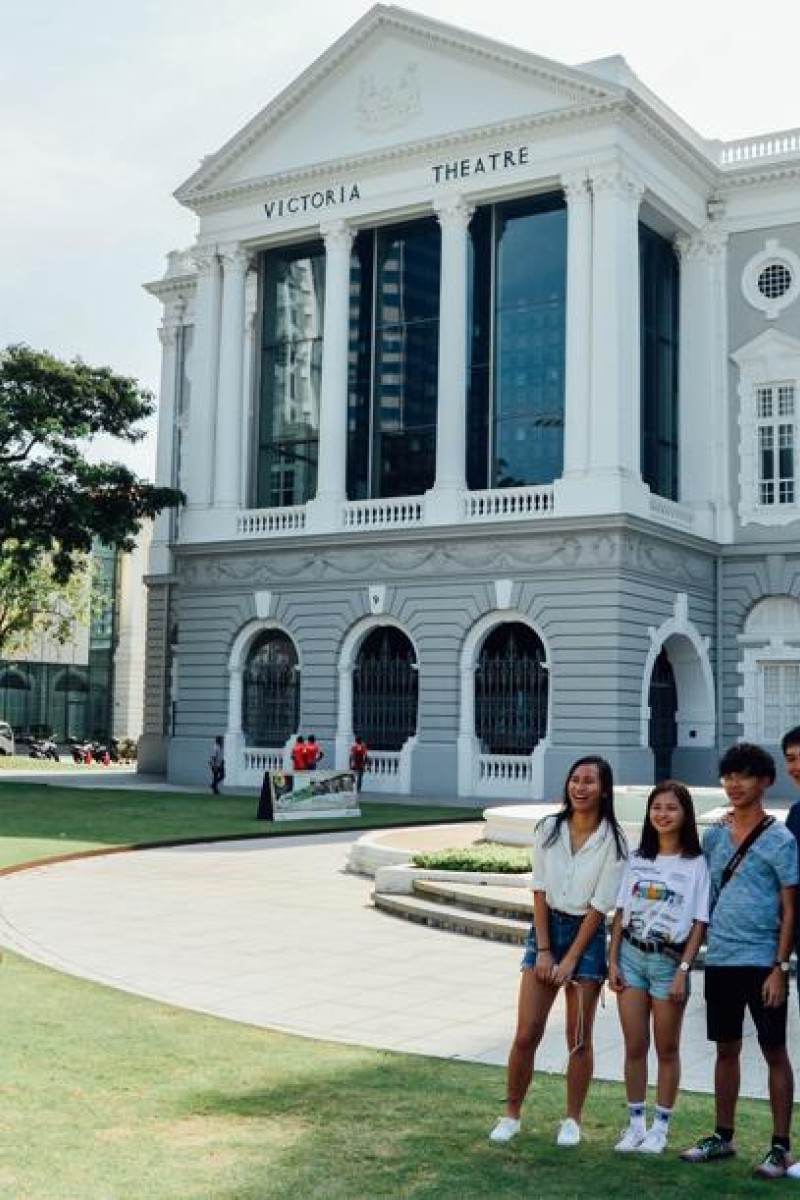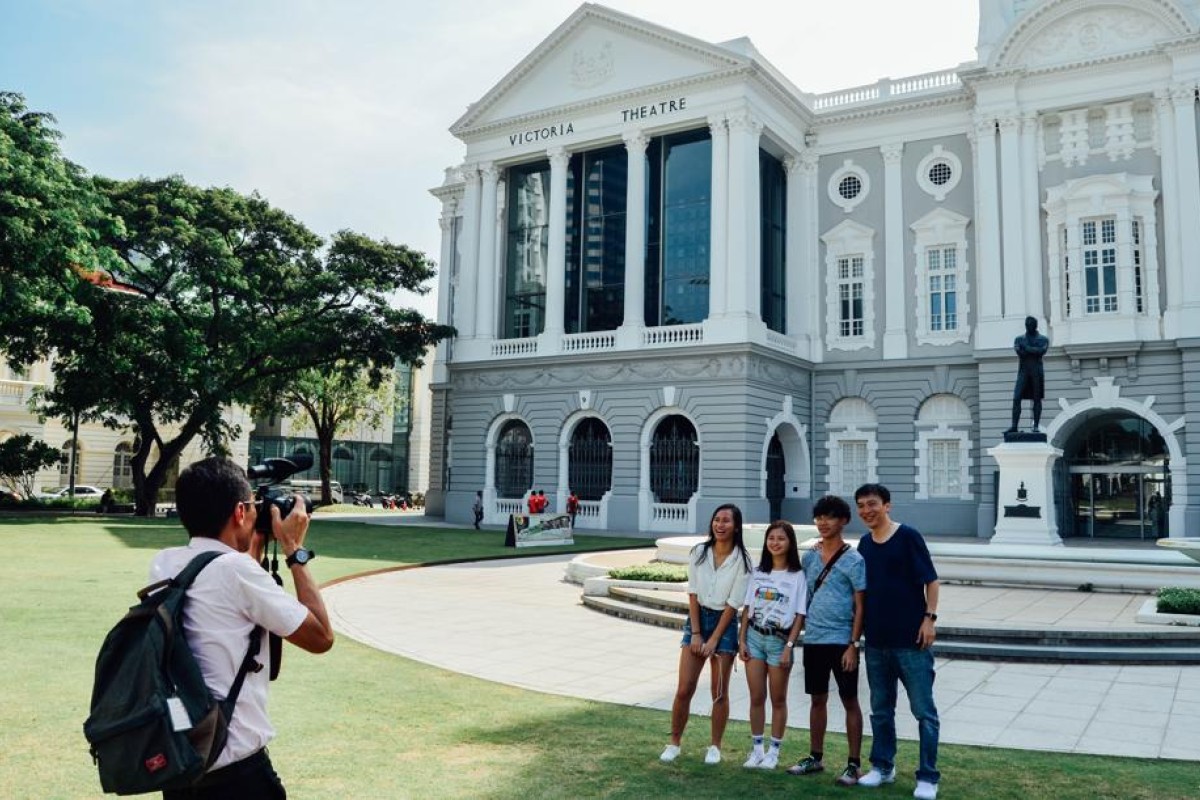
Eight HK school students won a study tour to Singapore to learn about its competition law and policies, and here are the funnest and most informative parts of the trip
 The students also visited the Victoria Theatre and Concert Hall in Singapore.
The students also visited the Victoria Theatre and Concert Hall in Singapore.Eight secondary school students from Hong Kong won a fantastic opportunity to explore Singapore and learn about competition law from some of the city state’s top academics and officials.
The students, from Henrietta Secondary School, St. Catharine’s School for Girls, and STFA Lee Shau Kee College, took part in the July 24-26 study tour, which was part of the prize offered by the Hong Kong Competition Commission’s “Don’t cheat. Compete” advocacy contest. The trip offered the winners a chance to gain a deeper understanding of Singapore’s new laws.
Already sweltering under the Singapore sun, we met our local tour guide, Bernard Chua, across the street from Changi Airport. Greeting us in both Cantonese and English, just two of the four languages he speaks on a daily basis (the other two being Putonghua and Malay), Chua made us feel right at home as we got ready to zip around the city in his souped-up Toyota minibus.
The feeling of homeliness and familiarity was soon erased, however, as we arrived at the Gardens by the Bay, the city’s flagship nature park. Sprawling metal constructions decorated by vines, orchids, and ferns towered over us as we took in the marvels of the cityscape in the background. Built in 2012, the hollow “supertree groves” function as chimneys for the biomass incinerator underneath them. Who would’ve thought that a government policy can manifest itself in such wonderful ways?
Another highlight of the day-long tour was the visit to the Old Parliament House, the country’s oldest surviving building, and the former seat of its legislature. Bearing all the hallmarks of British architecture, the parliament building was inherited from the city’s former colonial rulers.
“Singapore sticks to the system of British parliamentary democracy,” said our tour guide. “It is a practical system that allows different voices to be heard.” Much like the building itself, the government has clearly withstood the test of time, with the ruling People’s Action Party in power for all of the 52 years since the founding of the Lion City.
Despite the allure of Singapore’s wonders, we were there to learn about its competition law and the lessons it might provide for Hong Kong. With that in mind, we visited the Competition Commission of Singapore (CCS) to hear from the lawyers and economists who work behind the scenes to “make markets work well”.
“It’s about promoting the efficient functioning of markets,” said Toh Shihau, the CCS’s Senior Assistant Director of the Policy and Markets Division. “Anti-competitive behaviour not only means higher prices for consumers, but also less innovation in the industry.” Toh added that although the CCS intends to enforce the law vigorously, there are exemptions made for government-owned monopolies and agreements that “achieve economic efficiencies”. Competition in sectors with high start-up costs (such as water supply networks) can in fact be wasteful.
The winners shared their stories with the competition gurus. Speaking of her team’s video animation – which chronicled an airline price-fixing incident – Lisa Chong Chin-ying of STFA Lee Shau Kee College told the group about her views on the issue.
“Competition Law is relevant to our lives as we are affected by it as customers,” she said. Her teammate, Ottilia Wong Hung-ying, agreed: “Hongkongers like to travel a lot and so collusive behaviour can lead to us paying higher prices for poorer services.”
We also got the chance to hear from Dr Burton Ong, an expert in competition law from the National University of Singapore. When asked if market regulation is the heart of the economy, Ong offered a rather interesting response. “I don’t know if it is the heart, but it may well be the liver, or even the gall bladder,” he quipped. “You get the idea – it is important.”
The study tour didn’t just offer the winners a relaxing time in Lion City; it also gave them a better understanding of the systems that have made Singapore a viable competitor to Hong Kong as a global financial hub. It has shown these aspiring leaders of our city that there are still more things to be done to make Hong Kong a better place for everybody.